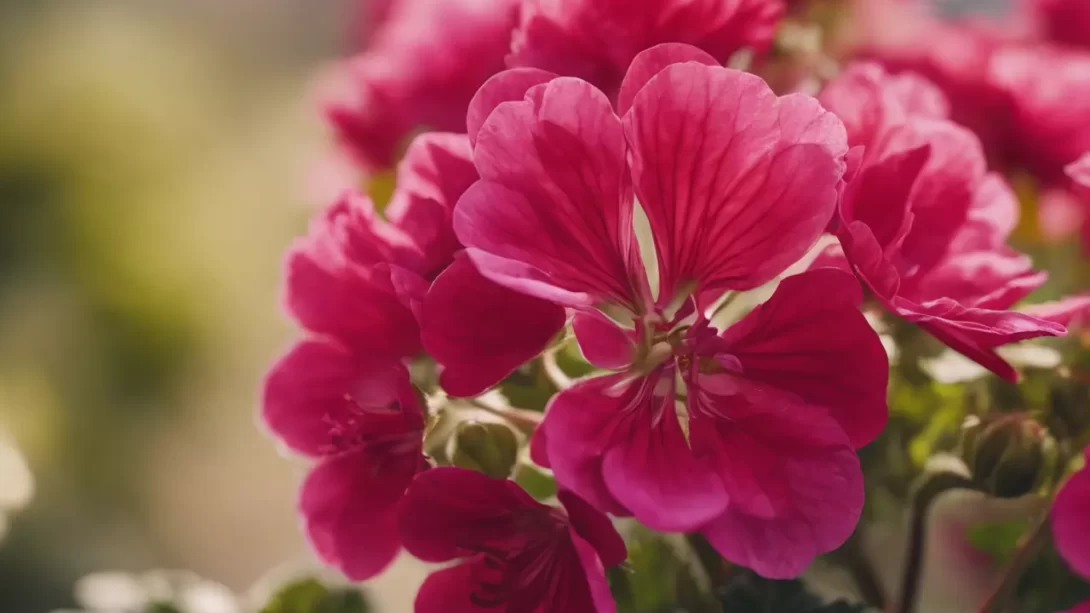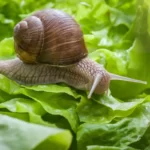Gardeners often face the challenge of protecting their plants from deer, known for their ability to turn a lush garden into a nibbled landscape. Understanding deer feeding habits is essential in safeguarding certain plants, like geraniums. This article explores whether geraniums are a likely target for deer and offers insights into how gardeners can coexist with these graceful yet often troublesome creatures.
Deer and Geraniums: A General Perspective
Geraniums, with their bright blooms and fragrant foliage, are a popular choice in gardens. When it comes to deer, these plants are often considered to be deer-resistant, but not deer-proof. The likelihood of deer eating geraniums can vary based on several factors, including the type of geranium and the local deer population’s feeding habits. Generally, deer tend to avoid plants with strong scents or flavors, which includes some varieties of geraniums.
Types of Geraniums and Their Deer Attractiveness
It’s important to distinguish between true geraniums (Geranium spp.), often referred to as cranesbill, and pelargoniums, commonly known as geraniums in garden centers. True geraniums are usually more deer-resistant due to their scent and taste. Pelargoniums, on the other hand, may occasionally be browsed by deer but are not typically their first choice. The specific variety of geranium can also influence its attractiveness to deer. Some species with more pungent foliage are less likely to be eaten.
The relationship between deer and geraniums is not black and white. While these plants are generally less appealing to deer, hungry deer might still nibble on them, especially if other food sources are scarce. Understanding this dynamic can help gardeners make more informed choices about protecting their geraniums and other plants.
Factors Influencing Deer’s Feeding Choices
Environmental conditions play a significant role in determining a deer’s diet. During periods of food scarcity, such as harsh winters or droughts, deer are more likely to eat plants they normally avoid, including geraniums. The local deer population size also matters; in areas with high deer density, the competition for food increases, leading them to venture into gardens more frequently.
Additionally, the familiarity of deer with human environments can affect their feeding behavior. In suburban areas where deer are accustomed to human presence, they might be more daring in exploring gardens for food. On the other hand, in more rural or less developed areas, deer might be more cautious and stick to their natural diet unless food sources are particularly scarce.
Methods to Deter Deer from Eating Geraniums
Fencing and Physical Barriers
One of the most effective ways to protect geraniums and other garden plants from deer is through physical barriers. Fencing, especially those that are at least 8 feet tall, can effectively keep deer out. For smaller gardens or specific areas, individual plant cages or protective netting can also be used.
Deer Repellents
There are various deer repellents available, ranging from commercial products to homemade solutions. These typically work by emitting a scent or taste that is unpleasant to deer. It’s important to note that the effectiveness of repellents can vary, and they often need to be reapplied regularly, especially after rain.
Gardening Practices
Changing your gardening practices can also deter deer. This includes avoiding the use of fragrant fertilizers that might attract deer and keeping the garden tidy to reduce hiding spots for deer. Additionally, strategic planting can be effective; placing more deer-resistant plants around the perimeter of your garden can sometimes discourage deer from venturing further in.
Alternative Deer-Resistant Plants
Creating a deer-resistant garden doesn’t mean sacrificing beauty and variety. There are numerous plants that deer typically avoid due to their texture, taste, or scent. Here’s a list of some popular deer-resistant plants:
- Lavender: With its strong fragrance, lavender is rarely touched by deer.
- Salvia: This plant not only has a pungent scent but also boasts beautiful flowers.
- Russian Sage: Its woody stems and aromatic leaves make it unappealing to deer.
- Marigolds: The strong scent of marigolds is known to deter deer and other pests.
- Boxwood: Often used for hedges, boxwood’s texture and scent are not favored by deer.
- Yarrow: This plant is not only resistant to deer but also attracts beneficial insects.
Incorporating these plants into your garden can create a natural barrier, reducing the likelihood of deer feasting on your more vulnerable plants like geraniums.
Conclusion
While geraniums are generally not a top choice for deer, they are not completely deer-proof. The likelihood of deer eating geraniums can depend on the specific type of geranium, environmental conditions, and local deer population. By implementing effective deterrents like fencing, repellents, and strategic planting, gardeners can better protect their geraniums. Additionally, incorporating deer-resistant plants into the garden layout can further discourage deer from causing damage. Understanding and adapting to the challenges posed by deer can lead to a more harmonious coexistence and a thriving, diverse garden.




